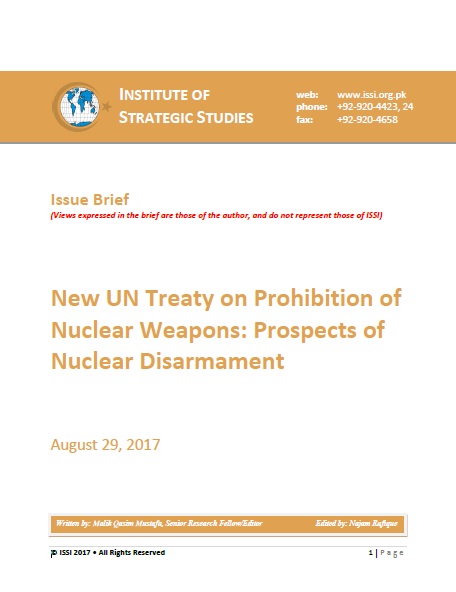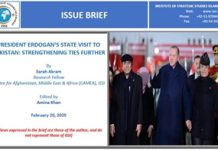Since the advent of nuclear weapons technology, the international community has made several attempts to control its spread and pursued the broader objectives of arms control and comprehensive nuclear disarmament. Over the past decades, the international community has devised several instruments and formed an international nuclear non-proliferation regime. These measures achieved some success in the nuclear non-proliferation domain and established Nuclear Weapons Free Zones (NWFZ), pursued arms control measures and prohibited some categories of the Weapons of Mass Destructions (WMD) like chemical weapons, biological weapons, land mines and cluster munitions. However, the international community hardly achieved any success in the domain of comprehensive universal nuclear disarmament due to the priorities, positions and policies of major Nuclear Weapons States (NWS). Currently, there are nine known nuclear weapons states, which include the US, Russia, UK, China, France, India, Pakistan, Israel, and North Korea. Due to their political and national security reasons, they have increased their reliance on nuclear weapons. This may cause insecurity for other smaller and weaker states, and could compel them to acquire nuclear weapons capability to address their insecurities. In addition to this, there is a profound fear that the growing rise of non-state actors and terrorist organisations might also compel these actors to acquire nuclear weapons technology to further their goals, which could endanger regional and the international peace.
Home ISSI Publications Articles Issue Briefs Issue Brief on “New UN Treaty on Prohibition of Nuclear Weapons: Prospects...















